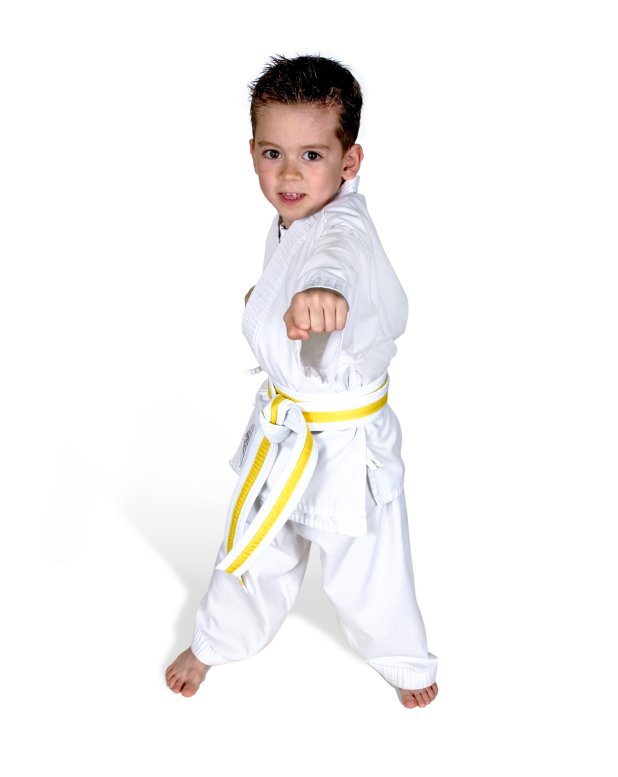
Martial arts, when taught and practiced responsibly, do not inherently make kids violent. In fact, martial arts can have numerous positive effects on children’s physical and mental development. For a much more detailed look at the psoitive benefits of martial arts training check out this link. For the shorter version, here are some reasons why martial arts are generally considered a positive activity for kids:
- Discipline and Self-Control: Martial arts instill discipline and self-control in children. They learn to follow instructions, practice patience, and control their impulses. This training helps them develop the ability to think before acting, reducing the likelihood of impulsive or violent behavior.
- Confidence and Self-Esteem: As children progress in martial arts and achieve new belts or skills, they gain confidence and self-esteem. This newfound confidence can lead to a sense of empowerment that doesn’t require them to resort to violence to prove themselves.
- Physical Fitness and Stress Reduction: Martial arts involve physical training, which promotes fitness and well-being. Regular exercise releases endorphins, reducing stress and helping children manage their emotions more effectively.
- Focus and Concentration: The rigorous training and attention to detail in martial arts require focus and concentration. These skills transfer to academic and everyday life, helping children excel in school and other activities.
- Respect for Authority and Peers: Martial arts emphasise respect for instructors, fellow students, and opponents. Children learn that authority figures can be trusted and thus deserve respect, and this understanding can positively impact their behavior in school and at home.
- Conflict Resolution: Martial arts often teach peaceful conflict resolution techniques. Children learn that violence is not the only way to resolve disputes and that communication and negotiation can be more effective and constructive.
- Bullying Prevention: While martial arts can help children defend themselves if necessary, they also teach children when it is appropriate to use their skills. Responsible martial arts instructors emphasise using martial arts techniques only in self-defense and as a last resort.
- Goal Setting and Perseverance: Martial arts involve setting and achieving goals, such as earning a higher belt. Children learn the value of hard work and perseverance, which can translate into other areas of their lives.
- Character Development: Many martial arts styles incorporate character development principles like integrity, humility, and empathy into their teachings. These principles guide children in becoming better individuals and contributing positively to society.
It’s crucial to choose a reputable martial arts school with qualified instructors who prioritise these character-building aspects of martial arts. Parents should be involved in their children’s martial arts journey, reinforcing the values learned in class and ensuring that martial arts training aligns with their family’s values.
It’s important to note that the impact of martial arts on a child’s behavior can vary depending on the style of martial art, the instructor’s teaching philosophy, and the individual child’s temperament and upbringing. Responsible instructors and programs focus on character development and personal growth, rather than promoting violence.
If you have concerns about a child’s involvement in martial arts or their behavior, it’s essential to communicate with their instructor and ensure that the martial arts program aligns with your values and goals for your child’s development. Additionally, parental involvement and supervision play a crucial role in helping children understand and apply the principles they learn in martial arts in a positive and responsible manner.
In summary, martial arts, when taught and practiced responsibly, provide a holistic approach to personal development that includes physical fitness, mental discipline, and positive character traits. These qualities help children grow into well-rounded individuals who are less likely to resort to violence in any situation.